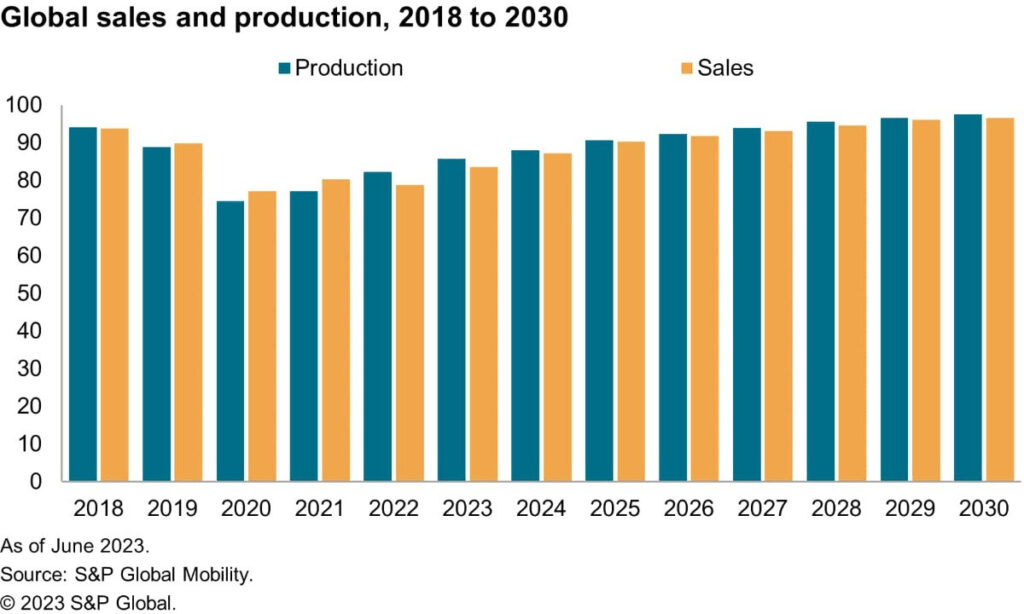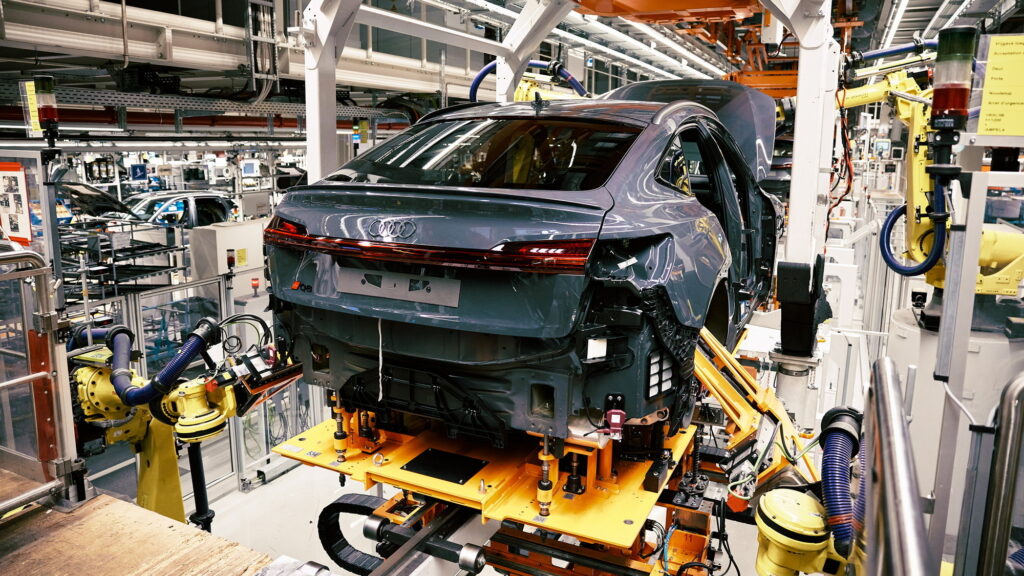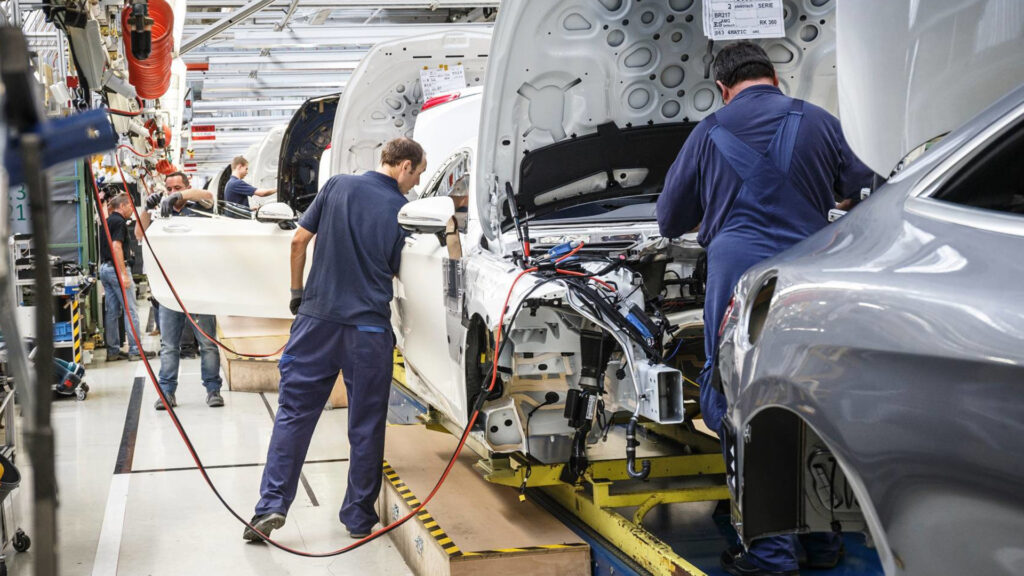The long-standing semiconductor shortage has mostly subsided in the automotive industry, a new study from S&P Global Mobility has found.
Semiconductors were in short supply for car manufacturers during most of the COVID-19 pandemic and in 2021, it is estimated that more than 9.5 million units of light-vehicle production was lost due to a lack of chips. The third quarter of 2021 was the hardest hit, losing an estimated volume of 3.5 million units.
The impacts of the shortage began to lessen throughout 2022 with an estimated 3 million units lost during the whole year. S&P Global Mobility says that semiconductor supplies have continued to improve this year and that the industry ‘only’ lost approximately 524,000 units during the first six months of 2023.
Read: BMW Breaks Ground On New Battery Assembly Plant In South Carolina

“We’ve moved from obvious disruption, clearly visible at the automaker and plant level, to a stage where we know constraint remains, but it is impossible to identify,” S&P Global Mobility executive director of global light-vehicle production Mark Fulthorpe said. “We are now in a position where the auto industry has adapted to a constrained supply, and as a result is much less likely to be hit by significant disruption. With the current semiconductor supply levels, we estimate that 22 million units of global light-vehicle production per quarter could be supported.”
The study warns that demand still exceeds supply for several types of semiconductors and that while demand for chips from consumer electronics has dropped, the number of chips needed by modern-day light-duty vehicles continues to increase.
Prior to the COVID-19 pandemic and the semiconductor shortage, S&P Global Mobility had predicted that global sales and production of light-duty vehicles could exceed 100 million units annually as early as 2022 having peaked at 94.1 million in 2018. However, analysts don’t expect the industry to recover to 2018 levels until 2028 and that it won’t be until after 2030 that new car sales exceed 100 million in a calendar year for the first time.








